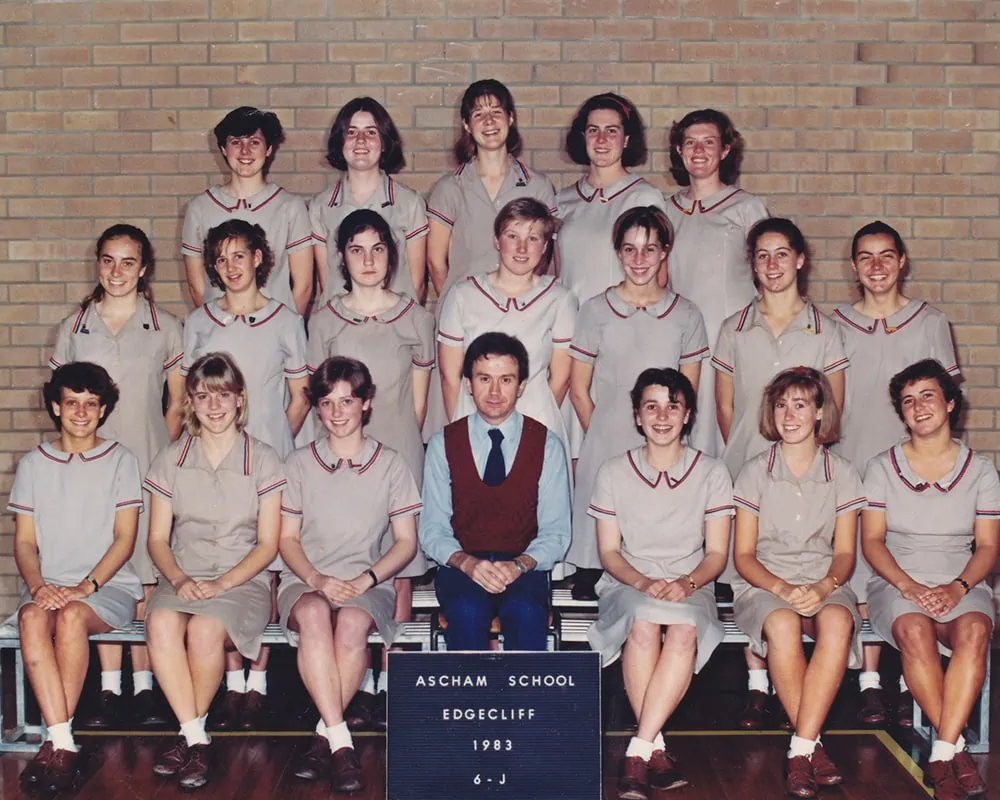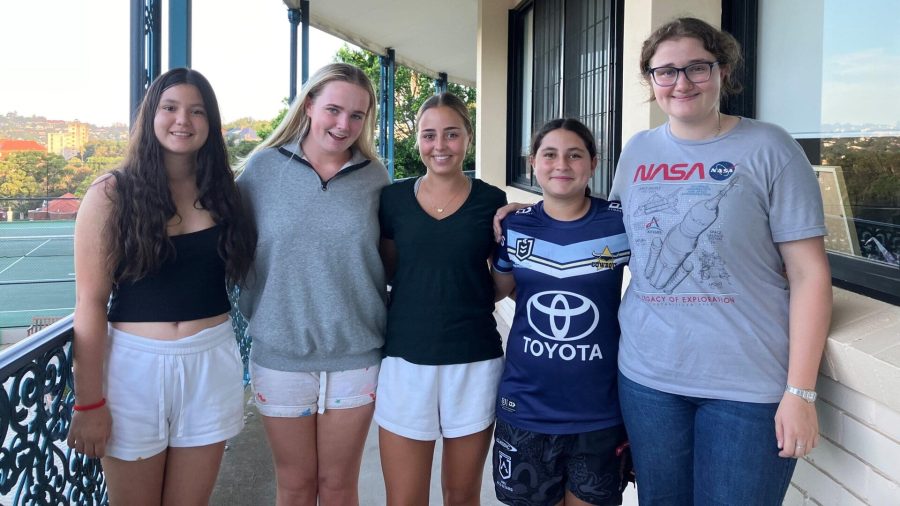The year 2010 saw me leave Ascham’s English Department, the place setting of my working life. My first Ascham teachers were Rowena Danziger, who gave me my job, and Beverley McGaw, who taught me the lore of the Dalton classroom. Firstly and always, I shall be grateful to them. But there were lessons to be learned outside English: from the Maths Department; from introductory mornings for prospective families; from my being observed with an Old Girl when she was at Sydney University. As I see them now, these moments sit not literally on a timeline but figuratively, on the circumference of one of many concentric circles. From whatever point at which it might begin on a given circumference, every radius leads necessarily to the single centre, to the Dalton Plan’s supreme achievement, to the Study.
An early point on one concentric circle was what I learned from the Maths Department. The Maths I knew at Ascham was set up in the late 1970s by Helen Lund, now Helen Kinsella. Over the years, under Helen’s steady hand, it earned the enviable reputation, as Mrs Danziger reported at a Prizegiving, of being perhaps the best high school Maths Department in the country. Introductory mornings required me to attend classes all over the School to describe to parents what was currently happening; I often went to Maths. My first insight took place when I was observing a 5th Form lesson of Johann Raeburn, an outstanding teacher. Memory of my own high school Maths allowed me to follow the steps in solving a trigonometry problem. Johann went slowly, and said very slowly, in that lilting Scottish accent:
‘I am now going to say something very mathematical.’
On cue, we all leaned forward, 5th Form and I, to be literally closer to the language. What Johann had done was to signal to the class that she was about to shift language register: from the simple formal register of the lesson so far and to a highly technical formal register. Cueing us as she did gave us the extra ears we needed to absorb the point. From that day on, I did in English what I’d learned from Johann. Before my eyes I watched the extra ears grow when I said:
‘I am now going to say something very technical.’
Introducing the School to prospective families provided some unexpected lessons. There’s a story:
One day, I had spoken about Senior School Studies at a Hillingdon introduction. During the tour to see the little ones in action, a lady spoke to me
‘Thank you for your description of a Study. You’ve answered a question I’ve had for 20 years. As an undergraduate, I lived at Women’s College. There were several Ascham girls living there. They were all very nice; they were enrolled in various faculties and departments; there was a range of ability among them.’
I confirmed all this.
‘Along came our first assignment. I saw every Ascham girl able to break down the task into its component parts, assign time to each, and—this is crucial—assign time between each part, write a draft, edit the draft, and submit a completed piece of work on time. How did they do it, all of them? It had nothing to do with their level of ability. I asked around. I heard the same answer. It’s the Dalton Plan. We’ve been doing this for six years. The only difference is that here you have a Study with yourself.’
The Dalton Study solved the lady’s conundrum.
‘By the end of fourth year,’ she told me, ‘I’d caught up with them. It took me all my undergraduate years to reach the point they were at in first term of first year.’
My final spot, on another concentric circle, keeps me at the university. For over 20 years, from my early forties to my mid-sixties, I was a member of SUMS: Sydney University Musical Society. I loved the choir. My choral years are relevant here for what they disclose of a particular Aschamic connection.
Every Wednesday night, prior to rehearsal, I had dinner in the sports union building with my friend David. He was English, a retired professor of mathematical statistics, with a love of music and literature. Together over dinner, we lamented the various losses these days in English teaching. David asked many questions about Ascham. He found the Dalton philosophy very interesting. Students actually learn in Studies how to take responsibility for their own work. He liked the key word: responsibility.
Very often, I would see an Ascham Old Girl. It was usually a former member of my English class or my Form class—now resident at Women’s College—who’d come swanning Aschamically through the café.
‘Mr Taaffe, what are you doing here?’
There always followed that particular Aschamic banter which every Old Girl reading this will recognise: chat; teasing; warmth; ease.
David said to me after one such exchange: ‘I can see every element of your school’s philosophy in the exchanges you have with your former students. It’s remarkable. Like nowhere else.’
The thread which knits my stories together is the Study. Those little conversations every week, prepared and timetabled by the girls themselves, mark how they take responsibility for their work. What Helen Parkhurst wrote in 1922 in Education on the Dalton Plan is what I saw vibrantly alive at Ascham:
What does a pupil do when given, as he is given by the Dalton Plan, responsibility for the performance of such and such work? Instinctively he seeks the best way of achieving it. Thus having decided, he proceeds to act on this decision. Discussion helps to clarify ideas and also a plan of procedure. When it comes to an end, the finished achievement takes on all the splendour of success. It embodies all he has thought and felt and lived during the time it has taken to complete. This is real experience. It is a culture acquired through individual development and through collective cooperation. It is no longer school – it is life. [p.23]
In my 37 years in the classroom, Aschamites’ sense of responsibility for their work brought them into a Study. The expression of their responsibility lies there: in the timetabling, in the planning and in the language of the Study. It was my working life. Ageing as I am, I remain always grateful to the Aschamites who taught me my job.
Mr Benjamin Taaffe



